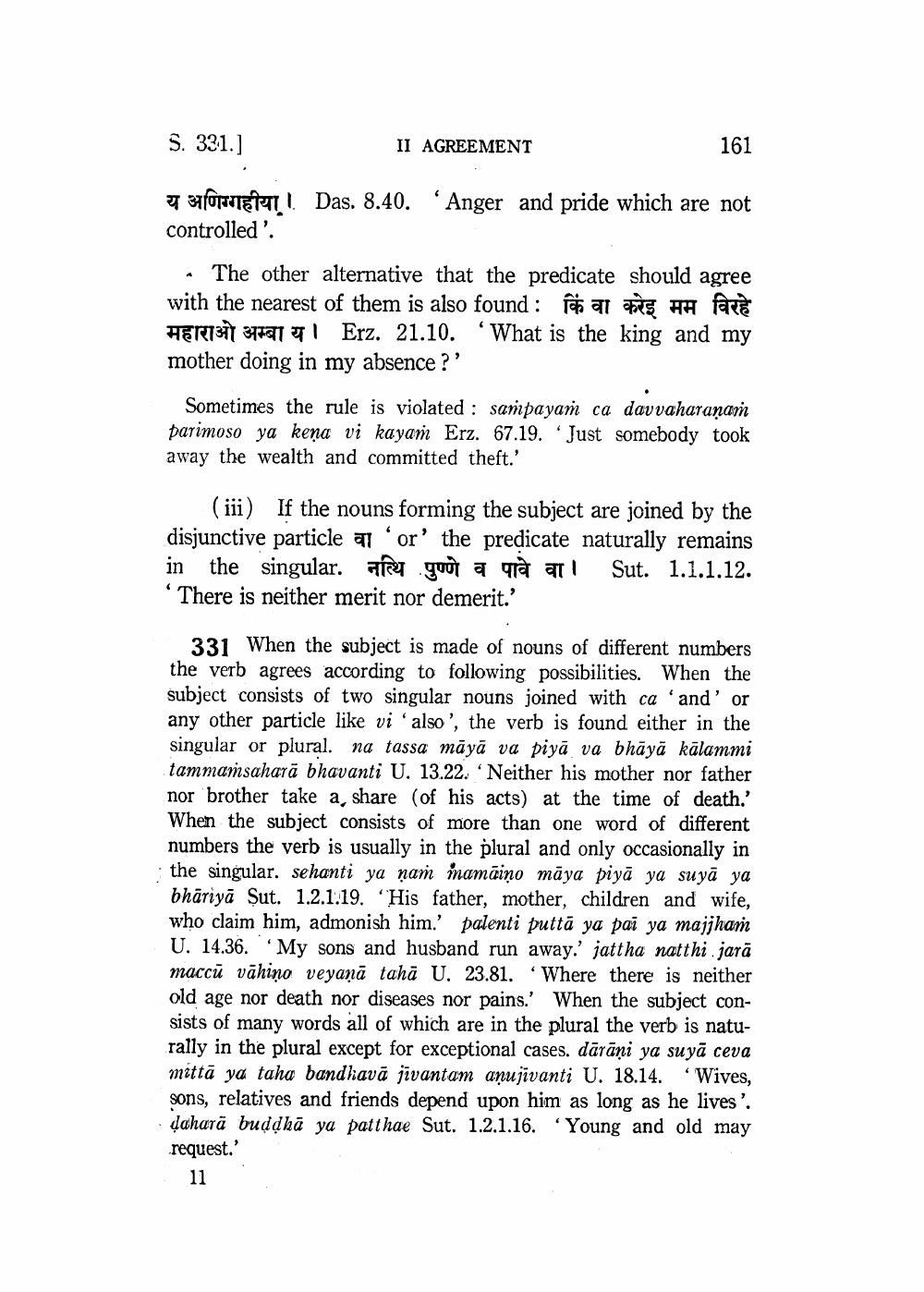________________
S. 331.]
II AGREEMENT
161
7 ore T Das. 8.40. 'Anger and pride which are not controlled '.
· The other alternative that the predicate should agree with the nearest of them is also found : किं वा करेइ मम विरहे HERI3 37791 of 1 Erz. 21.10. "What is the king and my mother doing in my absence ?'
Sometimes the rule is violated : sampayam ca davvaharanam parimoso ya kena vi kayan Erz. 67.19. Just somebody took away the wealth and committed theft.'
(iii) If the nouns forming the subject are joined by the disjunctive particle al or' the predicate naturally remains in the singular. A goot a ga art Sut. 1.1.1.12. * There is neither merit nor demerit.'
331 When the subject is made of nouns of different numbers the verb agrees according to following possibilities. When the subject consists of two singular nouns joined with ca 'and' or any other particle like vi also', the verb is found either in the singular or plural. na tassa māyā va piya va bhāyā kālammi tammamsaharā bhavanti U. 13.22. Neither his mother nor father nor brother take a, share (of his acts) at the time of death.' When the subject consists of more than one word of different numbers the verb is usually in the plural and only occasionally in the singular. sehanti ya nam inamāiņo māya piyā ya suyā ya bhāriyā Şut. 1.2.1.19. His father, mother, children and wife, who claim him, admonish him.' palenti puttă ya pai ya majjham U. 14.36. My sons and husband run away.' jattha natthi jarā maccū vāhino veyaņā tahā U. 23.81. Where there is neither old age nor death nor diseases nor pains.' When the subject consists of many words all of which are in the plural the verb is naturally in the plural except for exceptional cases, dārāņi ya suyā ceva mittā ya taha bandhavā jīvantam anujīvanti U. 18.14. "Wives, sons, relatives and friends depend upon him as long as he lives'. dahara buddhā ya patthae Sut. 1.2.1.16. Young and old may request.'
11




